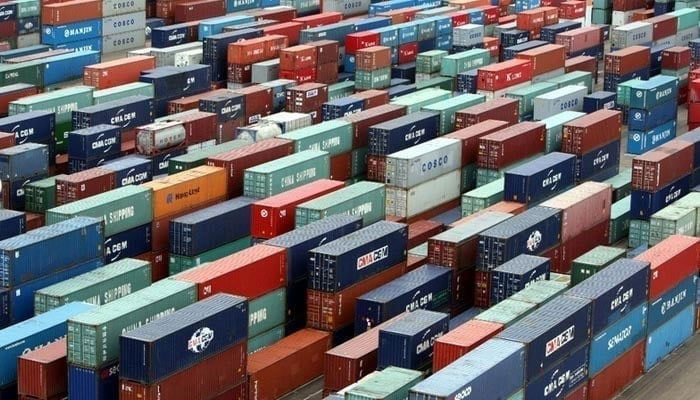FTA with the US?
Sialkot’s products meet stringent international quality standards, ensuring reliability and safety in medical applications
Consider these three facts: the US is already Pakistan’s single largest export destination, accounting for nearly $6 billion in annual exports; the US imports $125 billion worth of textiles annually; and over 60 per cent of Pakistan’s exports consist of textiles.
Currently, Pakistan’s textile exports to the US face tariffs of up to 15 per cent. On April 2, the US announced a new 29 per cent tariff, set to take effect on April 9. As a result, Pakistan’s exports to the US could decline by as much as a billion dollars, and unemployment in the textile sector – which employs 40 per cent of the country’s workforce – could rise significantly.
A Free Trade Agreement (FTA) with the US will bring down all tariff walls, boosting Pakistan’s exports by an estimated 20-30 per cent. Currently, Pakistan’s textile exports to the US are 3.0 per cent of the US textile imports. With an FTA in place, Pakistan could capture around 6.0 per cent of the US textile imports, potentially growing Pakistan’s textile exports to over $6 billion.
Last year, the US imported $20 billion worth of surgical instruments. Consider this: Sialkot is globally recognised for high-quality surgical instruments but exports are struggling to cross $500 million. Sialkot manufactures general surgical tools, dental equipment, veterinary instruments and specialised tools for ophthalmic and orthopaedic surgeries. Sialkot’s products meet stringent international quality standards, such as ISO 13485, ensuring their reliability and safety in medical applications.
Currently, Pakistan’s exports of surgical instruments to the US is 0.5 per cent of US imports. With an FTA in place, Pakistan could capture around 5.0 per cent of US imports of surgical instruments, potentially growing Pakistan’s exports to over $1 billion.
Last year, the US imported $12 billion in leather goods from countries like Vietnam ($3.25 billion), China ($2.58 billion), Italy ($1.46 billion), Indonesia ($1.16 billion) and Mexico ($684 million). Pakistan’s leather industry has access to premium raw materials and cost-effective production capabilities. Yes, Pakistan’s leather industry has the capacity to compete with the best in the world.
Currently, Pakistan’s leather exports to the US are 2.0 per cent of US leather imports. With an FTA in place, Pakistan could capture around 10 per cent of the US leather goods market, potentially growing Pakistan’s exports to over $1 billion.
In an average year, the U.S. imports approximately $75 billion worth of "miscellaneous business, professional, and technical services", which includes a wide range of IT-related services such as software development, data processing, and systems integration. Pakistan, with its rapidly growing IT industry and a strong pool of tech talent, has the capacity to capture a large share of this lucrative market.
According to the latest data, US companies' cumulative foreign direct investment (FDI) abroad reached $6.68 trillion, reflecting an increase of $364 billion from the previous year. In comparison, Pakistan's FDI reached $1.82 billion last year, despite the country's growing economy and its strategically important location. An FTA with the US could undoubtedly serve as a game-changer for Pakistan, unlocking vast potential for increased investment and economic growth.
The US market undoubtedly holds immense untapped potential for Pakistan’s key industries – textiles, surgical instruments, leather goods and IT services. An FTA with the US could propel Pakistan’s exports into the billions, fueling job creation, boosting foreign direct investment, and transforming the country’s economic trajectory.
Vietnam’s FTA with the US boosted its GDP per capita from $1,000 to $4,000 in 15 years. The numbers speak for themselves.
The writer is a columnist based in Islamabad. He tweets/posts @saleemfarrukh and can be reached at: farrukh15@hotmail.com
-
 Denzel Washington Surprises LeBron James
Denzel Washington Surprises LeBron James -
 Cillian Murphy's Hit Romantic Drama Exits Prime Video: Here's Why
Cillian Murphy's Hit Romantic Drama Exits Prime Video: Here's Why -
 Paris Hilton Reveals What Keeps Her Going In Crazy Schedule
Paris Hilton Reveals What Keeps Her Going In Crazy Schedule -
 Deep Freeze Returning To Northeastern United States This Weekend: 'Dangerous Conditions'
Deep Freeze Returning To Northeastern United States This Weekend: 'Dangerous Conditions' -
 Inside Dylan Efron's First 'awful' Date With Girlfriend Courtney King
Inside Dylan Efron's First 'awful' Date With Girlfriend Courtney King -
 'Sugar' Season 2: Colin Farrell Explains What Lies Ahead After THAT Plot Twist
'Sugar' Season 2: Colin Farrell Explains What Lies Ahead After THAT Plot Twist -
 ‘Revolting’ Sarah Ferguson Crosses One Line That’s Sealed Her Fate As Well As Andrew Mountbatten-Windsor’s
‘Revolting’ Sarah Ferguson Crosses One Line That’s Sealed Her Fate As Well As Andrew Mountbatten-Windsor’s -
 AI Rivalry Heats Up As Anthropic Targets OpenAI In Super Bowl Ad
AI Rivalry Heats Up As Anthropic Targets OpenAI In Super Bowl Ad -
 Kate Middleton, Prince William Share Message Ahead Of Major Clash
Kate Middleton, Prince William Share Message Ahead Of Major Clash -
 Is Dark Matter Real? New Theory Proposes It Could Be Gravity Behaving Strangely
Is Dark Matter Real? New Theory Proposes It Could Be Gravity Behaving Strangely -
 Viral AI Caricature Trend: Is Your Personal Data Really Safe?
Viral AI Caricature Trend: Is Your Personal Data Really Safe? -
 Lil Jon’s Late Son, Nathan Smith Spoke Highly Of His Father Before His Tragic Death
Lil Jon’s Late Son, Nathan Smith Spoke Highly Of His Father Before His Tragic Death -
 China Boosts Reusable Spacecraft Capabilities By Launching For The Fourth Time
China Boosts Reusable Spacecraft Capabilities By Launching For The Fourth Time -
 Bianca Censori On Achieving 'visibility Without Speech': 'I Don't Want To Brag'
Bianca Censori On Achieving 'visibility Without Speech': 'I Don't Want To Brag' -
 Skipping Breakfast? Here Are Some Reasons Why You Shouldn't
Skipping Breakfast? Here Are Some Reasons Why You Shouldn't -
 'Concerned' Prince Harry Future Plans For Lilibet, Archie Exposed
'Concerned' Prince Harry Future Plans For Lilibet, Archie Exposed




